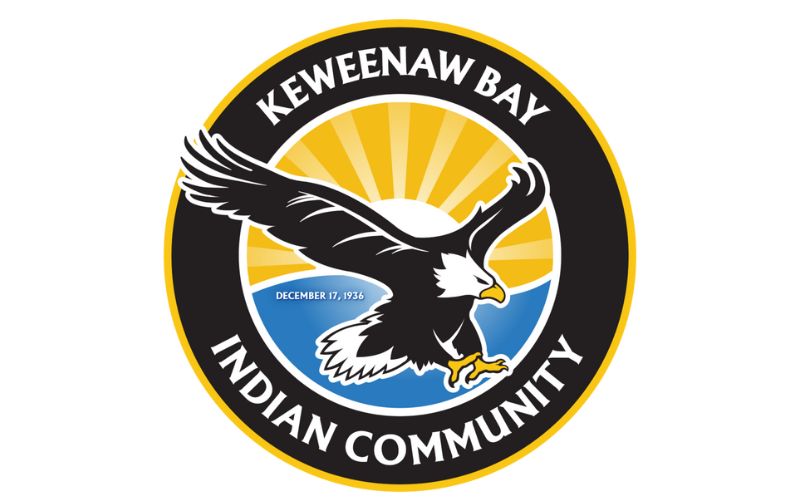
- Details
- By Native News Online Staff
A Michigan Indian Community is taking back ownership of close to 1,000 acres of stolen land with the help of global environmental nonprofit, The Nature Conservancy.
The tribe, the Keweenaw Bay Indian Community (KBIC) of the Lake Superior Band of Chippewa Indians, made the announcement on June 12. KBIC is a federally recognized Tribe will a primary land base of close to 60,000 acres, the L’Anse Indian Reservation. The tribe serves about 3,500 enrolled members in Baraga, Ontonagon, Gogebic, Marquette, Houghton and Keweenaw Counties.
The 760 acres of forest land in Baraga County was originally part of KBIC’s 1842 reservation boundaries, according to the tribe. The Nature Conservancy purchased the land in 2021 from a local owner, and officially transferred the deed back to the tribe at a tribal council meeting on Wednesday.
Evelyn Ravindran, the Natural Resources Director for KBIC, said that the tribe is dedicated to the long-term protection of natural resources, healthy ecosystems, and preservation of traditions for the generations to come.
“We recognize the importance of working together with like-minded co-stewards to achieve goals across man-made boundaries and look to developing and strengthening partnerships to realize our vision,” Ravindran said in a press release. “Over the years, TNC has welcomed KBIC’s input and involvement in the Keweenaw Heartlands Project and has expressed interest in other collaborations including wildlife monitoring and wild rice restoration.”
Helen Taylor, state director for The Nature Conservancy in Michigan, called the land transfer “vital” for supporting Indigenous and local communities.
“We are honored to make this contribution to KBIC’s future success by transferring this land to them,” said Taylor. “KBIC members have been stewards of the land for generations, and their cultural teachings signify and honor the connection between people, wildlife, and the natural world around us. “
More Stories Like This
NCAI Passes Two Emergency Resolutions on Immigration Enforcement ActivitiesChickasaw Lighthorse Police Officer named Indian Country Law Enforcement Officer of the Year
Indian Gaming Association Rallies Broad Coalition Against Sports Event Contracts It Calls Illegal Threat to Tribal Sovereignty
Navajo Resources and Development Committee Issues Notice on Livestock Inspection Requirements
American Prairie, Tribal Coalition Files Protest Over Rescinded Grazing Rights
Help us defend tribal sovereignty.
At Native News Online, our mission is rooted in telling the stories that strengthen sovereignty and uplift Indigenous voices — not just at year’s end, but every single day.
Because of your generosity last year, we were able to keep our reporters on the ground in tribal communities, at national gatherings and in the halls of Congress — covering the issues that matter most to Indian Country: sovereignty, culture, education, health and economic opportunity.
That support sustained us through a tough year in 2025. Now, as we look to the year ahead, we need your help right now to ensure warrior journalism remains strong — reporting that defends tribal sovereignty, amplifies Native truth, and holds power accountable.
 The stakes couldn't be higher. Your support keeps Native voices heard, Native stories told and Native sovereignty defended.
The stakes couldn't be higher. Your support keeps Native voices heard, Native stories told and Native sovereignty defended.
Stand with Warrior Journalism today.
Levi Rickert (Potawatomi), Editor & Publisher


